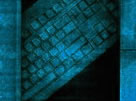



Resistance points to drawn-out war
Resistance points to drawn-out war
Paul McGeough, Chief Herald Correspondent in Beirut
July 28, 2006
ANALYSIS
Israel has bought time to press on with its air and ground offensive in
Lebanon, but fierce resistance by Hezbollah points to a much longer and
costlier war than anticipated by its army.
As the US and Britain stared down Arab and European demands for an immediate
ceasefire at a crisis meeting in Rome, the Israelis suffered their worst combat
losses since the war began.
Eight Israeli soldiers were killed and 22 wounded in ferocious fighting on
Wednesday in Bint Jbeil, a south Lebanese town which the Israelis had claimed
to be under their "total" control 24 hours earlier. In nearby Maroun al-Ras,
which the Israelis captured last weekend, another soldier died.
The Israeli military spokesman, Major Zvika Golan, said his men were ambushed
by about 100 militia because Hezbollah's anti-tank mines had forced them to
approach Bint Jbeil on foot. "We walked into a wasp's nest and we knew it would
be a wasp's nest," he said.
A senior officer on one of Israel's armoured brigades told The Jerusalem Post
that the capture of Bint Jbeil, which Israel says is a Hezbollah stronghold,
was expected to take two to three days. The fight entered its fifth day
yesterday.
Israel claims to have killed up to 200 Hezbollah fighters and to have destroyed
or seized much of its arms and munitions, but none of that has slowed the rate
at which Hezbollah is launching missiles at northern Israel - up to 150 of them
crashed in on Wednesday, injuring about 30 Israeli civilians.
A decision by Israel to permit some humanitarian help into Lebanon allowed
three Jordanian C-130 Hercules military transports to drop supplies into Beirut
and to evacuate urgent medical cases for treatment in Amman.
But painful negotiations were continuing to win guarantees of safety for relief
convoys attempting to reach distressed communities in Lebanon's south.
After the Lebanese Prime Minister, Fouad Siniora, made an impassioned plea for
a halt to the slaughter, the Rome meeting revealed diplomacy in a poor light.
It haggled for 30 minutes on whether the communique would urge all to "work
immediately to bring a ceasefire" or "work to bring an immediate ceasefire",
sources in the meeting said. Backed by Britain, the US Secretary of State,
Condoleezza Rice, held the line for "work immediately to bring a ceasefire".
The meeting did nothing to fast-track a ceasefire. Its reference to the UN
Security Council is not likely to be dealt with until early next week - and it
will take many weeks for its call for UN-led international forces to be
executed.
In any event, Israel has indicated it will not accept foreign troops until it
has achieved its military objectives.
The conference's call for a regional meeting is fraught too.
The UN Secretary, General Kofi Annan, insisted a lasting peace would require
the involvement of Hezbollah's key sponsors - Syria and Iran. He said: "It is
clear we need a new push for comprehensive peace. Without this, we are only
buying time until the next explosion."
But Syria and Iran were not invited to Rome and both the Americans and the
Israelis have virtually no relationship with either regime.
Despite the humanitarian crisis in Lebanon, which Washington champions as an
emerging Middle East democracy, the US insists the war is an opportunity to
address big picture issues - in which it sees no post-conflict role for
Hezbollah.
Dr Rice said after the meeting: "This is a region that has had too many broken
ceasefires".
The principal task of a UN force, Dr Rice said, should be to help the Lebanese
Government to disarm Hezbollah. While the US and Britain won the day in Rome,
observers were struck by their isolation in the face of rising anxiety in
Europe and especially in the Arab world, at being seen to have signed off on
prolonging a conflict that is causing regional anger and instability.
Mr Siniora threatened "legal proceedings" against Israel, though he did not use
the term "war crimes".
He ended his plea with a quote from Roman historian Tacitus, which he said
applied to Israel's conduct: "They created a desolation and call it peace".
Acknowledging Wednesday's battle losses, Major General Udi Adam, who heads the
Israeli Northern Command, predicted that attacks in Lebanon could go on "for
several weeks," adding: "We expect more days similar to this one."
Despite strong support for the war, Israel Radio said that Wednesday's
casualties could provoke a turn in public opinion.
The military commentator, Ron Ben-Yishai, was quoted as saying: "There will be
pressure from the public for a change of strategy. This will be a shock."
www.smh.com.au/news/world/resistance-points-to-drawnout-
war/2006/07/27/1153816321237.html


Trzeba żyć, a nie tylko istnieć.